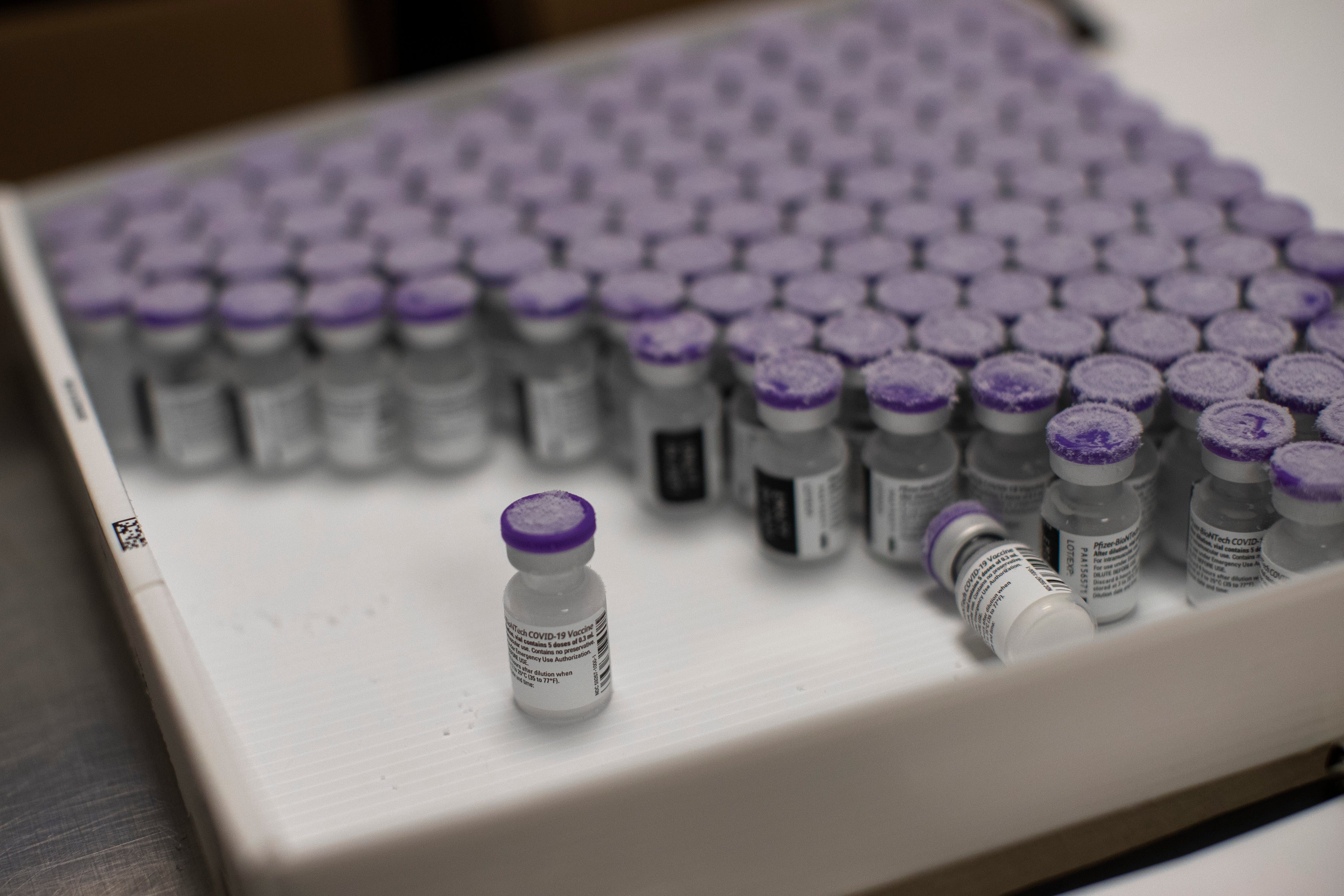WTO panel considers easing protections on COVID-19 vaccines
Envoys from World Trade Organization member nations are taking up a proposal to ease patents and other intellectual property protections for COVID-19 vaccines

Your support helps us to tell the story
From reproductive rights to climate change to Big Tech, The Independent is on the ground when the story is developing. Whether it's investigating the financials of Elon Musk's pro-Trump PAC or producing our latest documentary, 'The A Word', which shines a light on the American women fighting for reproductive rights, we know how important it is to parse out the facts from the messaging.
At such a critical moment in US history, we need reporters on the ground. Your donation allows us to keep sending journalists to speak to both sides of the story.
The Independent is trusted by Americans across the entire political spectrum. And unlike many other quality news outlets, we choose not to lock Americans out of our reporting and analysis with paywalls. We believe quality journalism should be available to everyone, paid for by those who can afford it.
Your support makes all the difference.Envoys from World Trade Organization member nations are taking up a proposal to ease patents and other intellectual property protections for COVID-19 vaccines to help developing countries fight the pandemic, an idea backed by the Biden administration but opposed in other wealthy countries with strong pharmaceutical industries.
On the table for a two-day meeting of a WTO panel opening Tuesday is a revised proposal presented by India and South Africa for a temporary IP waiver on coronavirus vaccines. The idea has drawn support from more than 60 countries, which now include the United States and China.
Some European Union member states oppose the idea, and the EU on Friday offered an alternative proposal that relies on existing World Trade Organization rules. The 27-nation bloc said those rules currently allow governments to grant production licenses — such as for COVID-19 vaccines or therapies — to manufacturers in their countries without the consent of the patent holders in times of emergency.
At stake in the meeting is whether the various sides can move toward drawing up a unified text, a key procedural step that could unlock accelerated negotiations. Inside observers cautioned, however, that a major breakthrough was not expected.
Even optimistic supporters acknowledge an IP waiver could take months to finalize because of solid resistance from some countries and WTO rules that require consensus on such decisions -- meaning a single country among the 164 members could scuttle any proposal. Even if adopted, ratification would also take time.
Advocacy groups, emboldened by the support the United States announced last month, have increasingly pushed the plan and insisted it would not be as difficult to carry out as detractors would say.
Doctors Without Borders, a Nobel Peace Prize-winning humanitarian agency, faulted the European Union, Switzerland, Norway and other holdouts on the IP waiver idea Monday for employing alleged “delaying tactics.”
Pharmaceutical companies insist that an IP waiver could dampen the incentive for researchers and entrepreneurs to innovate and say vaccine-sharing by rich countries would be a much faster way to get shots to health workers and at-risk populations in the developing world.
The World Health Organization has repeatedly inveighed against unequal access to vaccines, noting that rich countries scooped up supplies well in excess of the need of their own populations while developing countries have obtained only a small fraction of the doses so far distributed and injected worldwide.